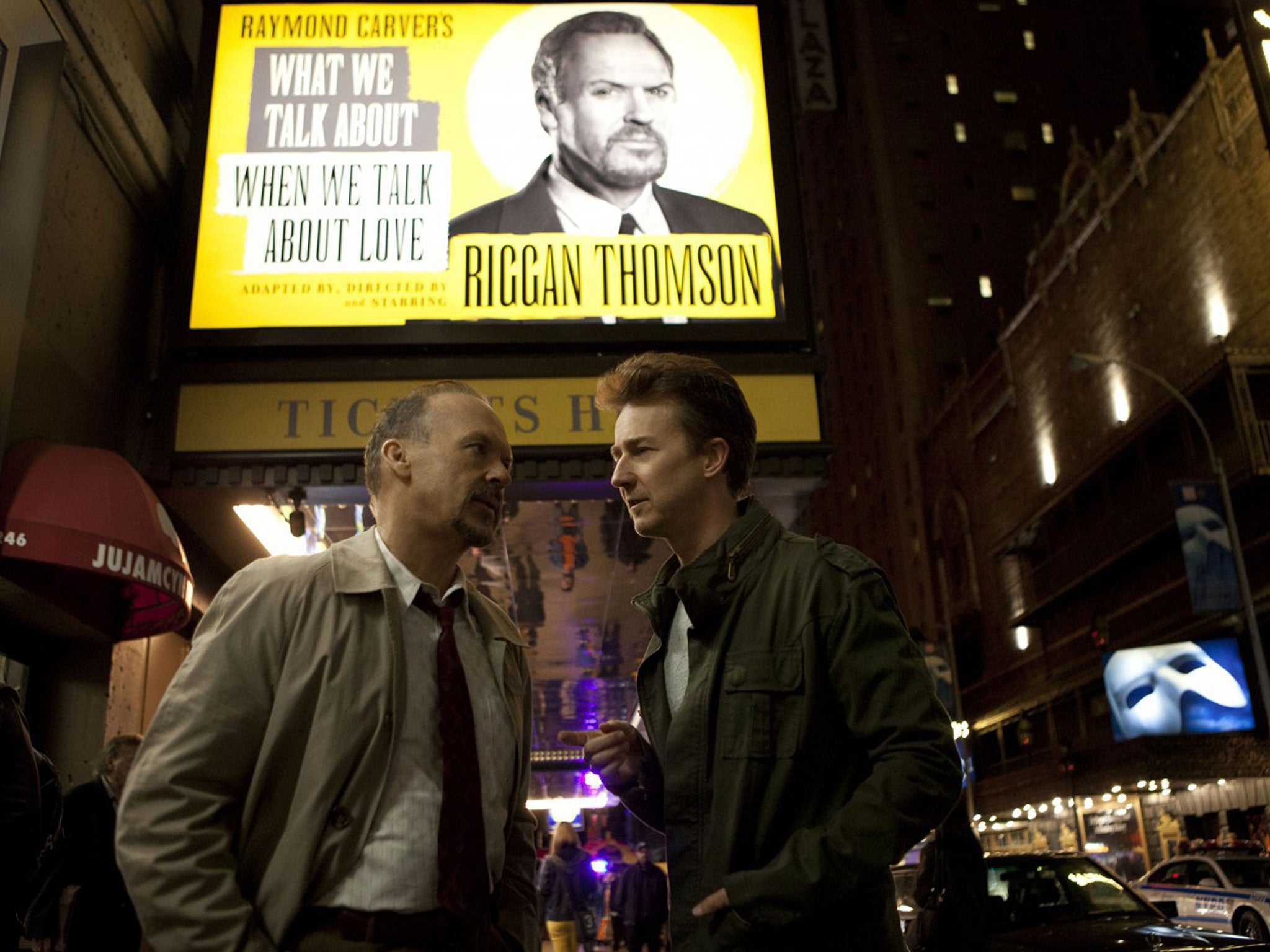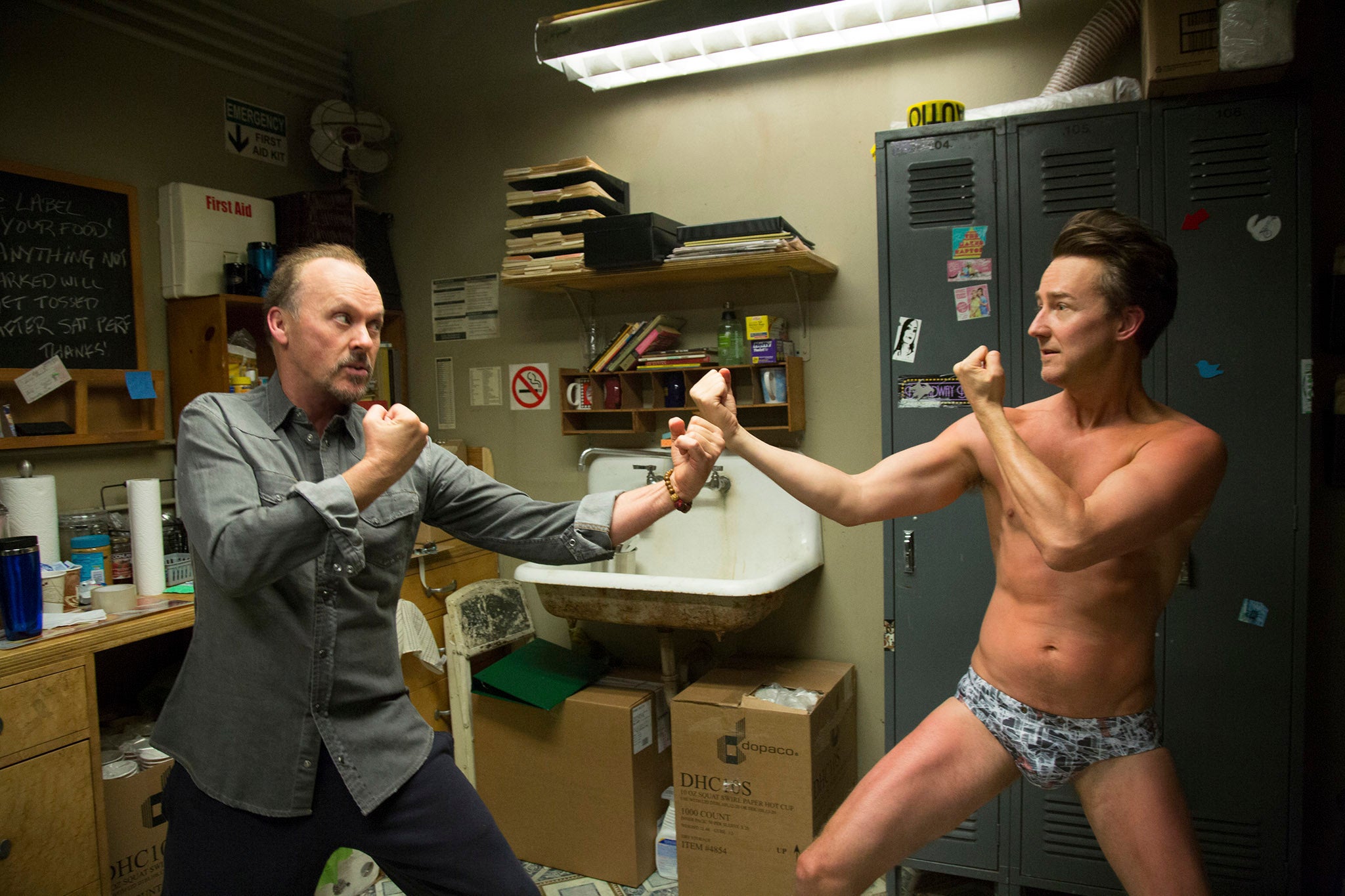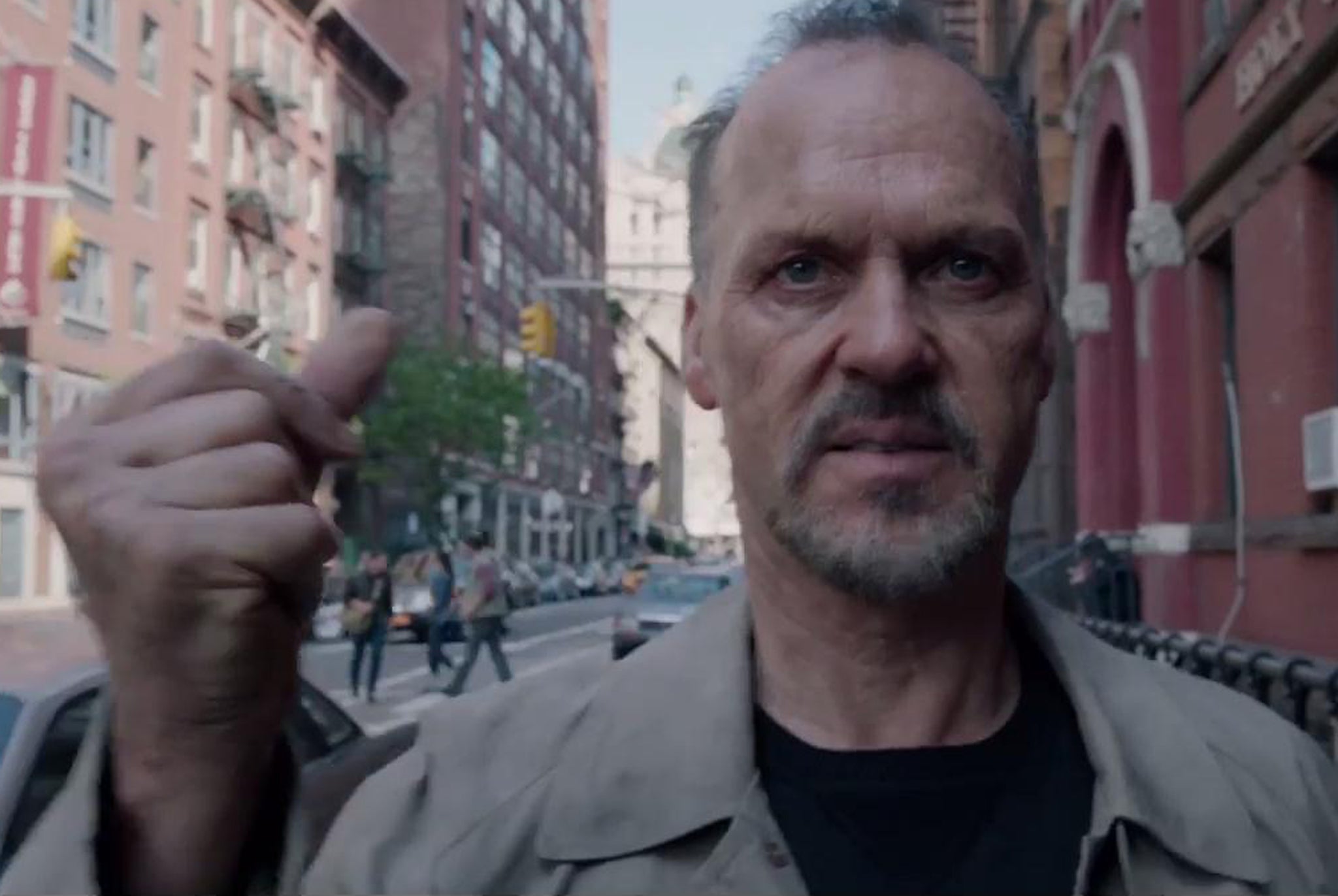Birdman, review: Michael Keaton gives a bold performance in this oddball movie
Superb filmmaking from a cast and crew who push themselves to the limit

Depending on how you approach it, Alejandro González Iñárritu’s Birdman is either a lament for an old fashioned, actor-driven style of independent cinema, dying on its feet in an era of superhero movies, or a celebration of the continuing potency of such cinema.
Either way, it is superb filmmaking in which everyone involved, from the writers to the stars and the brilliant cinematographer Emmanuel Lubezki (who trumps his own work on Gravity), pushes themselves to the absolute limit.
Birdman also possesses an irony and humour conspicuous by their absence in some of Mexican director Iñárritu’s portentous earlier movies (for example, 21 Grams and Babel.) In its sheer, reckless inventiveness and risk taking, this is one of the most original films of recent times.
Michael Keaton plays Riggan Thomspon, a one-time Hollywood big shot trying to resurrect his career by appearing in and directing a Broadway production based on Raymond Carver’s short story, What We Talk About When We Talk About Love. His recovering drug addict daughter Sam (a spiky Emma Stone) spells out to him just how irrelevant he has become.
The former movie star is performing in a play aimed at “a thousand rich old white people whose only real concern is where they will go and have their cake and coffee once it is over.” He is desperately striving for relevance in a world that has already forgotten him.
“Who the fuck are you?” she shrieks at him. “You hate bloggers. You mock Twitter. You don’t even have a Facebook page. You’re the one who doesn’t exist. You’re doing this because you’re scared to death, like the rest of us, that you don’t matter - and you know what, you’re right!”
Riggan is a Quixotic figure, courageous but deluded. He has the feeling that Birdman (the superhero he once played) is speaking to him. In rehearsal and preview, the play seems awful. Its characters (desperate alcoholics cheating on one another) are as desperate as the actors playing them. A spotlight crashes down on one actor’s head, requiring Riggan to hire Mike (Edward Norton), a preening egotist but one with credibility and box-office appeal, as a replacement.

Riga and his cast are striving for an elusive emotional authenticity, but they’re haunted they are engaged in a cheap masquerade.
Lubezki films Birdman as if we are watching a single sequence. There are no obvious cuts - although there is no attempt to suggest the film is unfolding in real time. The prowling, handheld camerawork and the constant drumbeats on the soundtrack add to the sense of mounting nervous tension.
This is a film in which nothing, and no character, ever stays still. There aren’t any moments of respite. When Riggan steps outside the fire door to gather his thoughts and have a cigarette, he finds himself locked out of his own theatre in his underwear. He isn’t even safe in his own dressing room. There will always be Japanese journalists knocking on the door to ask him when he is going to appear in the next Birdman sequel.
The “unexpected virtue of ignorance” is a line written about the production by the New York Times hatchet woman of a theatre critic, Tabitha Dickinson (Lindsay Duncan.) Riggan’s naivety is his shield. He blunders through hurdles that better trained, more sophisticated stage actors would never have overcome. He confuses “real” life and the part he is playing.
It is a brilliant performance from Michael Keaton, someone who has himself been dismissed as a washed-up actor in recent years and who used to be defined by his roles in big budget movies like Beetlejuice and Batman. In a bravura and mercurial performance, Keaton captures Riggan’s obnoxiousness and mental frailty (his abnormal behaviour, the voices he hears in his head) but also his heroic quality. He really is striving to be the best he can.
Not since Joseph L. Mankiewicz’s All About Eve (1950) has there been a backstage drama with such caustic dialogue. When Riggan berates Tabitha Dickinson about the cowardice of her reviewing (“just a bunch of crappy opinions backed up by a bunch of even crappier comparisons”) and protests that he is a “fucking actor” who risks everything, she cuts him off at the knees by sneering at him: “you’re no actor, you’re a celebrity.” As if being taunted by the critic isn’t bad enough, Riggan is equally harshly mocked by his own alter ego, Birdman. The rest of the cast members treat each other viciously too.

Every character here registers strongly. British actress Andrea Riseborough is on screen only fleetingly as Riggan’s girlfriend and co-star but still is given time for diva-like tantrums and for a startling lesbian scene.
As one of the other actresses in the ensemble, Naomi Watts combines malice (gossiping away about Riga’s daughter little realising she is within earshot) with comic bewilderment (not least when Edward Norton tries to make love to her live on stage.) Norton’s Mike is sleazy in the extreme but when he is not lounging on a subbed or hitting on Riggan’s daughter, he has a Method-style integrity about him.
Riggan, meanwhile, is assailed by doubt as opening night comes ever nearer. “Give the people what they want. Some good old fashioned apocalyptic porn,” his Birdman shadow whispers in his ear as he walks down the street.
As he begins to fantasise about maybe being a movie superhero again, we are briefly transported into what seems like a scene from Transformers, with helicopters, rocket launchers and explosions. The public needs action, Birdman tells him, “not talky, depressing, philosophical bullshit” like Raymond Carver adaptations.
We’re never sure what’s for real or how Iñárritu defines artistic integrity, success and compromise. The Broadway play seems laughable - but so too does Riggan’s old Birdman movie persona.
Ignorance really is a virtue in this case. Without it, the director implies, artists would never get anywhere because they wouldn’t be dumb or conceited enough to risk failure and humiliation in the way that Keaton’s character does throughout this wildly bold, funny and oddball film.
Join our commenting forum
Join thought-provoking conversations, follow other Independent readers and see their replies
Comments
Bookmark popover
Removed from bookmarks